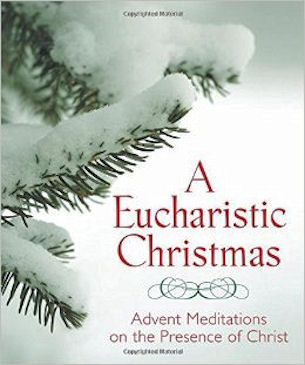
|
Posted March 14, 2006
Book: Eucharistic Doctors: A Theological History Owen F. Cummings Paulist Press, NY, 2005, pp. 274 An Excerpt from the Jacket:
The thirty “Eucharistic doctors” included in this volume are not doctors in the formal sense of the term, but in the broad Christian tradition of eucharistic thought. Ranging from the patristic age to contemporary time, and embracing both the Eastern and Western Churches, they include Ignatius of Antioch, Hippolytus, Ambrose, John Chrysostom, Augustine, Maximus the Confessor, Thomas Aquinas, Wyclif, Ltuer, Calvin, Thomas Cranmer, George Herbert, Bellarmine, Jeremy Taylor, Schleiermacher, Newman, and many more. Although they represent different geographical locations, time periods, languages, and traditions, they all have this in common: a recognition of the Eucharist as central to the Christian faith. An Excerpt from the Book: Arguably, it is Augustine’s doctrine of the Eucharist — about which he never wrote an entire treatise — that is at the heart of our tasting and enjoying God, and our being healed. His great speculative work on the Trinity, the thirteen-years-in-the-making City of God — indeed, all Augustine’s works find their divinizing focus in this ritual of sharing the blessed bread and cup. Through this ritual we, too, stand in the same tradition of Catholic euchristic faith — that is to say, that in the Eucharist Christ is not changed into us as is ordinary food, but we are changed into him. Augustine’ s great contribution and emphasis lies in our being changed into Christ by the eucharistic gifts, and our being communioned one with one another here and now. A Maximian eucharistic spirituality speaks especially to our times with the concern today for relationality, for the environment, for the healing of relationships between men and women. The Eucharist as the heart of the person-in–the-church is the healing link with the cosmos. This eucharistic healing, “this cosmic liturgy,” as Andrew Louth has it, “is the reality of the humblest celebration of the divine liturgy.” The healing begun and advanced here and now in every celebration of the Eucharist, reaches its finale at the Parousia, when God-in-Christ-through-the-Spirit is all in all. Table of Contents: Part One: The Patristic Age 1. Ignatius of Antioch 2. Two Roman theologicans: Justin and Hippolytus 3. The Syriac and Greek Churches: Ephrem of Nisibis and Cyril of Jerusalem 4. East and West: Augustine of Hippo and Maximus the Confessor Part Two: The Middle Ages 6. The Celtic witness and John Scottus Eriugena 7. Two Parisian professors: Hugh of St. Victor and Cardinal Robert Pullen 8. Eucharist in poetry and prose: St. Thomas Aquinas 9. Two Oxford scholars: John Duns Scotus and John Wyclif Part Three The Reformation Age 10. The classical reformers: Martin Luther, Huldrych Zwingli and John Calvin 11. The English reformation and the Eucharist: Bishop John Fisher of Rochester and Archbishop Thomas Cranmer of Canterbury Part Four: After the Reformation 12. George Herbert, Cardinal Robert Bellarmine and Jeremy Taylor 13. John Wesley Part Five: The Modern Age 14. Friedrich Schleiermacher, and Johann Adam Mohler 15. Cardinal John Henry Newman and Edward Bouverie Pusey 16. The Eucharist in our times: An Irish Catholic, David N. Power, and an English Methodist, Geoffrey Wainwright |
|
